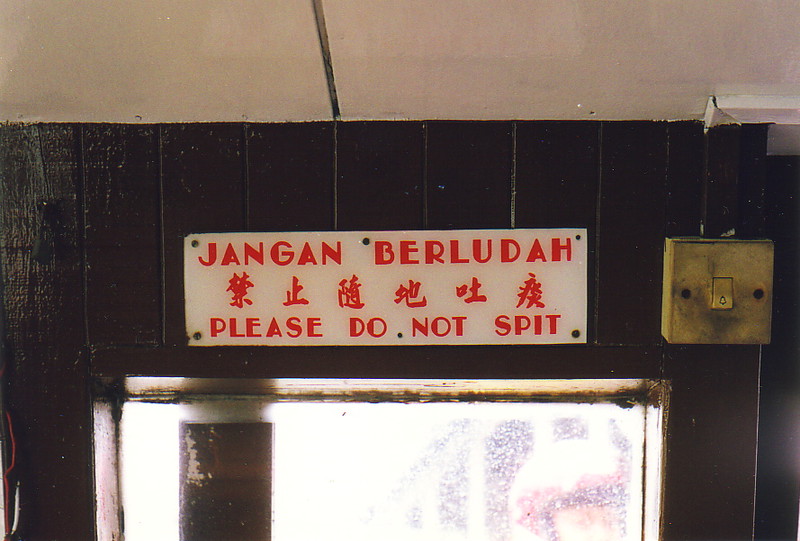-
Update Required To play the media you will need to either update your browser to a recent version or update your Flash plugin.
- Listen via a podcast [Help]
- Download as AAC or MP3 [Help]

Charlie and I boarded the ferry to Pulau Pangkor with plenty of time to spare, ready for a few days of serious relaxation. We sat together on the crowded ferry, lone white faces in a sea of Malay weekend holidaymakers (it being school holidays in this, the latter half of December), and while Charlie chatted to an English-speaking and very interesting Malay on his left, I stared out to sea, unable to hear the conversation above the cacophony of the engines. And that's when I noticed the little boy over on the other side of the cabin.
He looked miserable, truly distraught. His mum was hugging him and stroking his hair, pulling strands of fringe off his slightly sweating forehead, and patting his hand in a show of devoted attention. The boy's left hand gripped a handful of material, which I noticed was part of a sarong that hung around his waist; I thought he just wanted something to hold on to, but his mother kept checking his grip on the garment, making sure he held it tightly as if his life depended on it. I wondered if he'd damaged the muscles in his hand or had been treated for an infection of the joints. Whatever it was, it obviously hurt.
The boat swayed and shuddered on its half-hour trip across to the island, and during this time the young boy – who couldn't have been more than 11 or 12 – started to look more and more pained. His mother was sympathetic, but his father and another man looked more fatalistic, as if the boy's suffering was just one of those facts of life; on the other hand, other men in the compartment looked as if they fully understood the boy's pain, and exchanged knowing glances with each other of a type that I've only seen when someone gets kicked in the crotch1. The father and his companion toyed with a bag of capsules, probably antibiotics, but I couldn't for the life of me understand what an ill little boy was doing on the boat, obviously in a distressed state.
Not far from land, the boy began to cry. He was obviously trying very hard to keep his feelings bottled up, but some kind of pain was hurting him badly. He lay down, putting his head in his mother's lap while she dried his tears with a handkerchief, carefully ensuring his continued grip on his sarong. I felt extremely sorry for him; whenever he glanced at me, which was fairly often as we were sitting opposite each other, he looked almost ashamed to be suffering, but his eyes told of serious agony. He seemed to assume that I knew exactly what he was going through.
Just then Charlie leaned over. 'You see that boy over there?' he asked. I nodded. 'Guess what.'
'What?' I asked.
'He's just been circumcised.'
I sucked in my breath, and it all clicked into place. Although I had no idea of his suffering, I knew that it would be hard to think of a more painful place to have an operation. Being male made us almost kindred spirits.
'Looks like his local anaesthetic's wearing off,' continued Charlie, a veritable encyclopaedia on the subject thanks to his informative neighbour. 'It's a religious thing; Muslims either get the chop when they're born, or between the ages of ten and 12. By the way, did you know that in America babies are automatically circumcised, unless the parents specify otherwise? Something to do with hygiene, you know.'
I looked over at the little boy with new-found respect, amazed at how brave he was being. He cried a little, accepted the good-natured care of his parents, and gritted his teeth. I was full of admiration; if someone had chopped my bathing cap off at the age of ten, I wouldn't have been accepting, I'd have been bloody furious.
1 We can't help it. In a movie, on the footy pitch, in a pub brawl... if men see another man get whacked in the central processing unit, they universally cringe in empathy. There is no pain worse than a bruised bollock, as every sportsman will tell you.